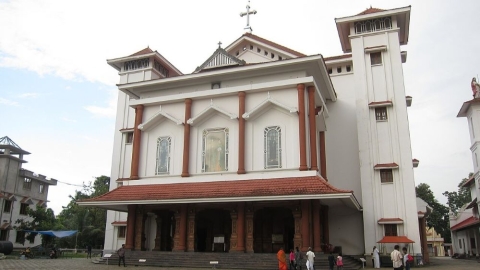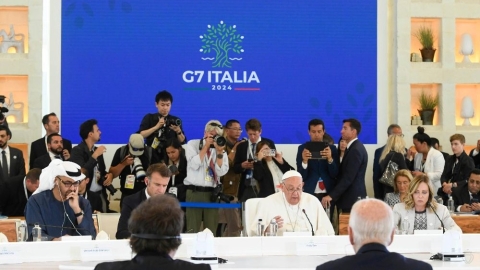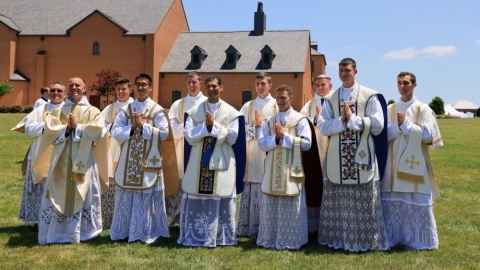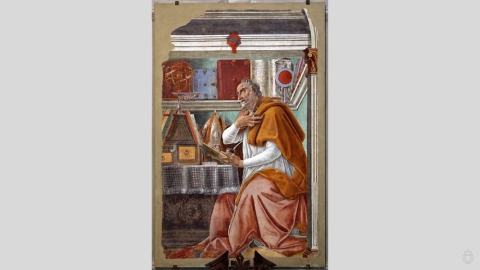The Church, Hong Kong, and the Ghost of Tiananmen Square

Hong Kong commemorate victims of 2019 Tiananmen Square massacres
As June 4, 2024 marked the 35th anniversary of the Tiananmen Square crackdown, Hong Kong's bishop called for leaving the past behind, while the courts in the former British territory have found 14 pro-democracy activists guilty .
35 years ago, on the night of June 3 to 4, 1989, on the orders of Deng Xiaoping, strongman of the communist regime, the People's Liberation Army opened fire on demonstrators gathered in Tiananmen Square in Beijing, ending six weeks of an unprecedented protest movement. The Chinese authorities reported 241 deaths, though these figures are disputed.
Every year, anticipating the return of the month of June, the Catholic Church seeks the renewal of the provisional secret agreement signed six years ago with Beijing. The Roman diplomatic service had to carefully reread the terms of the editorial published by Cardinal Stephen Chow on May 30, 2024 in the Sunday Examiner – the diocesan weekly from Hong Kong.
The Bishop of Hong Kong evokes the “deep wound” left by “the life-destroying event which took place 35 years ago.” The Pillar notes that he carefully avoids using the terms “massacre” or “Tiananmen,” the mere mention of which would be enough to irritate the Chinese government.
The idea developed by the high prelate is that it is now time to leave the past behind: “There remains a wound that requires appropriate attention to heal: I pray that it happens. That said, we must not wait but move forward. Healthy living should not be confined to a dark spiral of endless heartache and resentment,” he writes.
The Pillar recalls that a few months before his elevation to the cardinalate, on September 30, 2023, Chow, “in an interview with Mondo e Missione,” had made it clear “that he had joined Amnesty International before 1989” – one of Beijing’s bêtes noires – “but that he was no longer a member.”
The newspaper continues: “Since he was appointed Bishop of Hong Kong, the high prelate has repeatedly emphasized the importance of reconciliation.” He thus made “a five-day visit to Beijing in 2023,” and “a second official trip to mainland China in April of this year.”
The Pillar notes that, visibly anxious not to alienate the communist authorities, Bishop Chow also called on local Catholics “to love our country and our Church at the same time” while “recognizing the difficulties” currently encountered by the faithful in China.
On May 29, Beijing in its own way anticipated the commemoration of the repression: the Hong Kong justice system “pronounced 14 pro-democracy activists ‘guilty’ of ‘subversion’” reports Le Figaro, “in the biggest case to date linked to the National Security Law promulgated in mid-2020.” Ucanews, in turn, reported that on the same day “seven people were arrested” for having published messages on social networks deemed “seditious” in the eyes of the CCP.
Another prisoner has been languishing in prison for three years: Jimmy Lai, of Catholic faith, former director of the Apple Daily newspaper – a media critical of the government – is awaiting the continuation of a trial that began last January, during which he decided to plead “not guilty,” at the risk of incurring the heaviest penalties provided for by the Hong Kong law on national security imposed by Beijing, reports Le Monde.
In a context where the rare spaces of freedom of Chinese Catholics on the continent and in the former British concession are melting like snow in the sun, the Holy See is working to renew the provisional agreement, in order to strengthen the links between the Church and China.
But this comes at the cost of continued persecution which Roman diplomacy hopes will only continue in the short term.
Related Article:
(Sources : Sunday Examiner/Ucanews/Le Figaro/Le Monde/The Pillar – FSSPX.Actualités)
Illustration : Flickr / Etan Liam (CC BY-ND 2.0)





